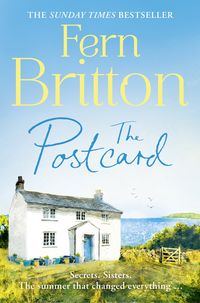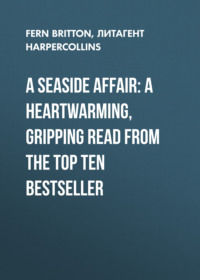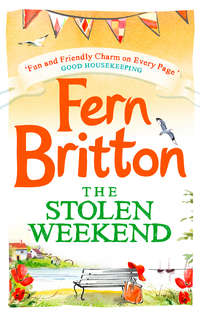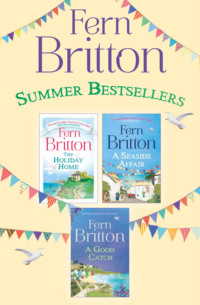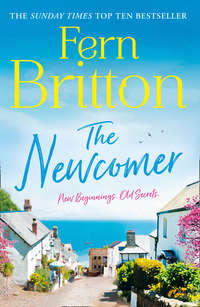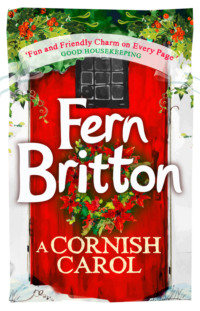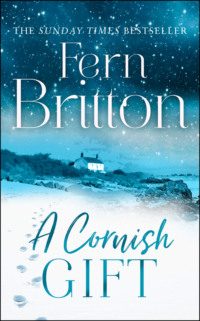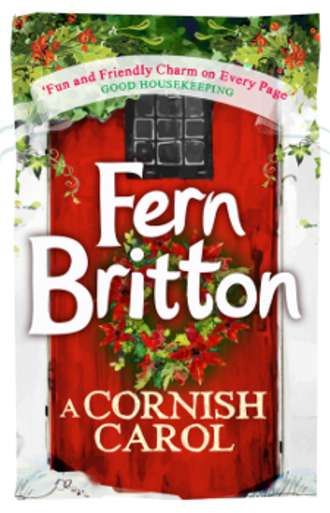
Полная версия
Hidden Treasures
‘Yep. But no luck so far,’ Helen said glumly.
‘Don,’ the barmaid called, ‘is Gull’s Cry still for sale down in Pendruggan?’
A man with the build of an ex-boxer came through the door behind the bar. ‘Old Vi’s house? I think so. Why?’
‘This lady is lookin’, that’s all.’
Don, pulled the tea towel from his shoulder and pushed it on to the bar. ‘Oh yeah? Needs a bit doin’, mind. Is your ’usband good at that stuff?’
‘I am looking for myself, actually. I’m thinking about moving down here from London.’
‘Holiday ’ome, is it?’
‘No. A home home.’
‘Pendruggan is a lovely place mind, but the cottage is small. People want lots of bedrooms, see. To let out.’
‘How big is it?’ she asked.
‘Just a little two-up two-down. Wanna look at it? I’ll call Neil, the agent who’s selling it, if you like.’
‘Well, I’m here so, yes!’
Don disappeared back into the gloom behind the bar and the barmaid introduced herself. ‘I’m Dorrie. Me and Don ’ave been here for nearly twenty years. There’s not much we don’t know about round here. In a good way,’ she added, seeing Helen’s face. ‘We look out for each other here, you see. A bit different from being in London, I expect.’
Helen took in the surf-blonde short hair, sawn-off denims and lime-green hoodie with its washed-out, illegible message. She reckoned Dorrie must be in her early forties.
‘It’s a lovely place to live. We get really busy in the summer and then the winter is quiet, but we love it and the people are really friendly. I take my boys down to the beach to surf in all weathers, and always on Christmas Day.’
‘I’m not sure my kids would like that.’
‘My two’ll show them. Ben’s twelve and Hal’s fourteen.’
‘Well, Chloe is twenty-two and Sean’s twenty-five.’
Dorrie’s face lit up, ‘Perfect! We got gorgeous lifeguards for yer daughter and lots of bar work for yer son.’
Helen thought of sweet and earnest Chloe being pursued by bronzed lifeguards. No way. And as for slick ad-man-about-town Sean serving pints of cider in a pub – absolutely no way!
Don came back rubbing his hands together with pleasure. ‘Spoke to Neil up at the estate agents and he’ll meet you there in half an hour. I’ll draw you a quick map. It’s only a couple of miles, but the signposting isn’t good. In fact, there isn’t any. A cup of coffee while you wait?’
It took her twenty minutes to find the village. The lanes all looked the same, but when she finally found the small village green with a sign saying Pendruggan, and saw the granite cottage with the FOR SALE sign, it was love at first sight. The front drystone wall of Gull’s Cry had a wonky gate that drooped on to the brick path and over the years it had worn a groove in the clay. Lavender lined the path to the cottage and the huge pots of tall agapanthus either side of the front door were heavenly. She stooped to look through the brass porthole set in the middle of the door but couldn’t see much besides dusty floorboards.
Neil took out the huge old metal key from his pocket, put it in the lock and they stepped inside. It smelled of dust and disuse, but no damp.
‘It’s been empty a couple of years. The old lady who lived here, Miss Wingham, was in a nursing home till she died. The estate have had it on the market ever since. Too expensive for the local first-time buyers and too small for the upcountry folk who want holiday lets.’
He let her walk round the kitchen, through to the sitting room. She tried to lie down in the wide window seat. Not quite long enough, but perfect to curl up in with a book. Or a cat? She opened the far door, which led to the stairs, and made her way up. Polished oak with a circular bend bringing her out to the landing and two bedrooms. The view from the bedrooms was to the front, overlooking the village green, while the window on the stairs gave a view of the garden and the church. After a quick tour of the overgrown garden, she and Neil retired to the Dolphin to discuss terms.
When her offer was accepted by the executors, Dorrie poured them all a large glass of vodka and cranberry to celebrate.
The vodka left Helen feeling unsure about driving, so Don invited her for supper upstairs in their private bit of the pub. ‘Dorrie’s got a chicken in the oven for tea. There’s plenty to go round.’
Completely seduced by her new house, the village and its people, she followed him upstairs. She had never seen the landlord’s accommodation above a pub before, but this was certainly not what she expected. It was like something out of a glossy magazine. Light and airy with a beachy feel to it, the colours were cream and café au lait. The bleached floorboards were strewn with richly coloured rugs, one wall was adorned with a fabulous painting of boats in a harbour, all broad strokes and bright colours. There was a pile of driftwood by the wood-burning stove, and a coffee table made entirely of wide planks. The sofas were deep and squashy and scattered with slightly crazy cushions, each embroidered with a single rose-pink seagull and embellished with real feathers.
‘Wow! This is amazing! And look at the view. You can see the sea and the cliffs.’
Don looked embarrassed. ‘Dorrie and I worked on it over the winter. Do you like it? The floor’s a bit wonky, but after I sanded it we decided it looked all right.’
‘It’s fabulous! What the London women I know wouldn’t give for this! Where’s the coffee table from?’
‘That? I made it from some old scaffold boards I found. Rubbish really.’
‘You did it? Don, I want my cottage to look just like this! Will you do it for me?’
3
Don and Dorrie had sorted out all the building and decorating after that, while Helen set about packing up her old life. She couldn’t wait. The London house was lovely, but it held too many memories. The good she could file away, the bad she would delete.
Sean thought she was mad.
‘Ma, what on earth do you think you’re doing? Lots of older people get an idea in their heads to retire to the seaside, only to find they miss their old life and end up dying lonely.’
‘Sean, I am forty-seven. Not quite in my dotage, thank you very much! In fact, still young enough to give you a little brother or sister, if I cared to.’
‘Ma, what a revolting idea. And what are you doing with that pile of vintage comics?’
‘Throwing them away.’
‘They’re worth a lot of money. Hang on to them for me, would you?’
‘Nope. All your stuff is yours from now on. Take it away or never see it again.’
Within an hour Sean had salvaged what childhood possessions he could fit into his absurdly small car and driven off in a huff.
Chloe had been more understanding. She understood that her mother had had enough of a painful marriage, but she adored both her parents and hoped that somehow they would get back together again.
On her last day, Gray came round to give her a bunch of flowers and a hug. They walked round the old place together and it felt right. He helped her pack her last few things in the car, slipped a wad of notes to the removal men as their tip, and together they shut the front door for ever.
‘Bye, old girl. Give me a bell to let me know you got there OK.’
‘I will.’ She kissed him briefly and with only a quick glance in her rear-view mirror, pointed the snub nose of the Mini in the direction of the M4.
*
And now here she was. Ten days later and everything settled. No looking back and certainly no regrets.
Don called to her, ‘Helen, I’ve set the timer and the thermostat.’
He tried again to explain the procedure to her, but although she nodded at the right moments, she didn’t understand it at all. It didn’t matter, he’d said she could call him again if she had any trouble.
As he was leaving, she said, ‘You don’t do gardening as well, do you?’
‘Nope. Don’t like worms. Ask Queenie, she’ll know someone.’
She’d been planning to nip into Queenie’s in any case, so she gathered up her things and a few minutes later she was ducking through her low front door. From force of habit, she turned to lock up, then decided instead to leave caution to the cautious. Nobody seemed to lock their front doors in Pendruggan and cars were never locked either.
Don had laughed at her when he had caught her frantically looking for her keys on first moving in: ‘Leave them where they’re meant to be, maid. Either in the front door or in the ignition. You’ll never lose them then.’
*
Queenie’s Post Office and General Store was the centre of village life. The day after Helen arrived in Pendruggan she had gone in for a pint of milk and Queenie, thrilled to find new blood in the village, had immediately launched into her life story. She had originally come to Pendruggan as an evacuee from London’s East End, but when her parents were tragically killed in the Blitz, the Cornish family with whom she’d been billeted took her under their wing. She stayed with them until she was eighteen, when she left to marry the local farmhand she’d fallen in love with.
‘I was married to Ted for fifty-two years, until he died of emphysema in 2000,’ Queenie sighed and lit a small roll-up cigarette.
‘The only way I’ll be leavin’ ’ere is in a box. My daughter Sandra wants me to move up to Coventry to be near her, but what do I wanna do that for? This is me ’ome and this is where I’ll stay until the day comes when I can rest next to my Ted in the churchyard. Would you like a pasty, duck?’
‘Yes, please. They look delicious.’
‘Homemade, they are! I do fifteen a day to order. When do you want yours?’
‘Can I have one now?’
‘No, duck. To order, like I said. Shall I put you on me regular list?’
‘Oh, I see. Yes, please. Can I have one tomorrow?’
Queenie took a gnarled pencil from her ear and pulled out a thumbed red exercise book. ‘What’s your name, dear?’
And Helen found herself telling Queenie her own life story in return.
‘That ex-husband of yours sounds like a right bastard, and no mistake. Still,’ Queenie adopted a look of wisdom, ‘that’s men for you.’ She paused. ‘And now you’re ’ere in Miss Wingham’s old ’ouse. She was a lovely lady, you know. Very old-fashioned in her ways, and ever so intelligent. She came ’ere to live before the war, you know. Lived in Gull’s Cry for seventy-seven years. She was on her own for all of ’em, no fella or nuffink. She never told me, but I fink she lost the love of her life in the war. She never said in so many words, but I could tell. Loved ’er cats too. Her last one was called Raven. She named ’em all after birds – I dunno why. Died peacefully in the nursing ’ome aged ninety-seven. She’ll be ’appy to think you’ve brought the old place back to life. Will you be doin’ the garden? She loved it. I’d like to get Alan Titchmarsh down ’ere to give it a going over. If you see ’im, you tell ’im!’ She laughed, then coughed a crackly cough that had been cultivated over decades of dedicated smoking.
Now, Thursday had become Pasty Day, and Helen was looking forward to another chat and a chance to browse the shelves, which were lined with greaseproof paper and red gingham. Queenie’s stock was extraordinary. Replacement suspenders for corsets and Blakey heel caps sat amongst the more mundane requirements. There was a well-stocked magazine rack, which Queenie devoured – showbiz gossip could have been her specialist knowledge on Mastermind – reading at the counter by the dim light of two bulbs suspended from the ceiling, the standard lamp with its pink shade by the freezer and the Tiffany lamp next to the till.
Queenie greeted Helen warmly as she entered. ‘Hallo, duck. I ain’t seen you much this week – you OK?’
‘Yes thanks, Queenie. I did a bit of a shop at Tesco in Trevay yesterday.’
‘Tesco? They ain’t got nothing in there! I go up sometimes on the bus, but they’ve never got anythin’ I want.’
‘Well, it was only to get a few things like balsamic and olive oil.’
‘Olive oil? We used to go to the chemist to get that, duck. And Balls Amic? What’s that when it’s at ’ome?’
‘A kind of vinegar.’
‘I got malt if you want it?’ Queenie turned to look at the gloomy shelf to her right.
‘Actually, what I do want, Queenie, is a gardener. Do you know anyone who would help me clear the garden?’
‘Oh yeah, me duck. Simple Tony’s the one you want.’
‘Tony?’
‘Simple Tony. ’E’s simple, poor lad, but a good worker. Very green-fingered.’
Helen was shocked at Queenie’s description of Tony as ‘simple’, but knew that Queenie’s generation had little truck with political correctness. She hoped that Queenie was more sensitive around the poor boy and didn’t call him ‘Simple Tony’ to his face.
‘Where does Tony live?’ she asked.
‘Next door to you. In that shepherd’s hut in the garden.’
Helen remembered the hut. The day she moved in, Polly – the owner of the house next door – had come round with mugs of camomile tea for the unimpressed removal men, who would definitely have preferred a more energising builder’s brew. Helen hadn’t had a chance to chat to her properly or find out anything about her, but since then there had been several occasions when she’d looked over into the garden and caught sight of a youngish man in a navy-blue boiler suit, sitting on the steps of the hut boiling a kettle on his camping stove. This must be Tony, Helen realised. She was glad to have an excuse to go round and find out more.
‘Is that all, duck? Want a magazine? I got some good ones there. Julia Roberts is a lovely girl, ain’t she? I like to read about ’er. And Fiona Whatsit what reads the news. Not enough about ’er. She’s very popular in my ’ouse, you know.’
‘I’ll have a bottle of wine please. I’ll take it round to Polly.’
‘Righto.’ She handed Helen a dusty bottle. ‘This has been ’ere since the Easter Raffle. Should be good by now.’
4
The smell of woodsmoke drifted over from Polly’s chimney and mingled with the damp of the conkers lined up in a row on the doorstep.
Polly opened the door with a smile.
‘Hello, Helen. Welcome to Candle Cottage. Don’t mind the conkers. I put them there to keep the spiders away – apparently they don’t like the smell of them. It’s for Tony, the big softie. He hates them! What can I do for you?’
She greeted Helen with a kiss and showed her into a room decorated with beachcombing finds and filled with vintage furniture.
‘Polly, what a wonderful room – is that a real crystal ball?’
‘Oh, that’s my ball to do the village fayres. I like a bit of fortune-telling, but only for fun. Occasionally I’m right. Little Michaela up the way came to see me last year with a broken heart and fretting about her GCSEs. I told her that her life would change in twelve months, and now she’s got five grade Cs and is five months’ pregnant! We’re all very proud of her. Cup of tea?’
‘How about a glass of wine? I’ve brought you a bottle from Queenie’s.’
‘Proper job! Let me find some glasses from the whatnot.’ Polly went to her dark wood shelves and took out two original Babycham Saucer glasses. ‘How are you settling in to village life then?’ She poured the wine and sat down on a Moroccan pouffe. ‘A bit quieter than London, I expect. I’d have come round to see you before now, but I was worried you’d think I was being nosy.’
‘It’s certainly quieter than London, which can only be a good thing. Polly, I want to pick your brains. I need a gardener and Queenie suggested Tony – the man from your garden. Does he actually live with you?’
‘Well, when his mum died, I couldn’t bear to see him on his own so I offered him the use of the hut and he loves it. He’s a super lad and will get your garden back on track. Don’t spoil him, though, and make sure he knows who’s boss.’
‘Queenie calls him Simple Tony. Is he … ?’
‘Don’t go confusing simple for stupid,’ said Polly. ‘He ain’t stupid. But he does have a tendency to take everything very literally. I once told him I was dying for a cup of tea and then had to stop him dialling 999!’ Polly laughed. ‘I’ll send him round to you in the morning and you can show him what needs doing. More wine?’
They sat and talked until it was quite dark outside. Helen filled her in on her previous life and then it was Polly’s turn.
‘Have you heard about Green Magic? It’s all about working with the power of nature and Mother Earth. Any little potion or spell I can rustle up for you? I find it complements my main work as a paramedic with the ambulance service.’
‘You’re joking!’
‘Absolutely not! I’m highly skilled – won awards and everything. So, if there’s any magical or medical emergency, don’t hesitate to call me! Would you like supper? I’m vegan, mind.’
‘That’s sweet of you but maybe next time. Thank you, Polly. I look forward to seeing Tony in the morning. Bye!’
*
At 6.45 a.m. Helen was woken by hammering on the front door. Scrambling from her bed she peered out of the window. It was just getting light and she could make out the top of a man’s head. He was wearing a thick green check lumberjack coat and carrying a spade. Opening the window, she called down, ‘Hello. Can I help you?’
‘I don’t know?’ said the top of the head, crouching now in order to look through the porthole. ‘I’ve come to ’elp you. Polly said that I was to come this mornin’ and do gardening? I’m right, I know.’
‘Just a minute.’ This has to be Tony, thought Helen. She ran downstairs and threw open the front door. ‘Good morning. It’s very early, Tony. I’m not dressed yet.’
‘No you’re not.’
‘Do you want to come back a bit later. In about an hour?’
‘No thank you. I am here to do the garden.’
‘Well yes, OK. Follow me, then.’
She took Tony out to the back garden, pausing only to slip on her wellies.
‘While I’m getting dressed, perhaps you’d like to start on the big bed here.’ She pointed at an eight-foot-square raised bed where the brambles were at least six feet high.
‘Just weed it and clear it and then I’ll be down to help you. OK?’
‘Yeah.’
‘Would you like a cup of tea?’
‘No thankee. I’ve got me Ribena.’ He patted his canvas shoulder bag. ‘Don’t hurry, lady. Tony will be all right.’
‘OK. See you in an hour or so.’
Back indoors, Helen struggled to get her wellies off her slightly sweaty bare feet, put the kettle on and looked at the clock: 6.55 a.m. Realising there was no point in going back to bed, she made herself a cup of milky coffee, opened up her laptop and logged on. There were seventeen new messages, fifteen of which were spam. But there was one from Penny and one from Gray. She looked at Gray’s first.
Darling, longing to see you and get the hell out of town. Can you give me a number for the best hotel you can think of? Better book a double in case I can’t escape the bloody girlfriend. Thanks, darling. Your Gray.
‘I am not your bloody secretary and you are no longer MY Gray!’ Helen muttered to herself, but nonetheless she sent a polite email with the number of the swish Starfish Hotel in nearby Trevay.
The Starfish was exactly Gray’s kind of place. In summer you couldn’t move in the old harbour car park for Porsches and Bentleys, and the Starfish was always awash with visiting celebrities pretending they were staycationing (before they jetted off to the South of France or the Bahamas). The Cornish locals didn’t mind a bit. If the townies with more money than sense wanted to spend their bucks down here, well, why not! Never underestimate the commercial nous of a true Cornishman.
Next Helen opened her email from Penny.
Hello, gorgeous, how’s it going? You’ll never guess what … I’m working on a new costume drama based on the books of Mavis Crewe. Have you read them? She’s a poor man’s Daphne du Maurier, but one or two of her books have cracking stories. We’re scouting for a location in Cornwall and, having looked at the map, I’ve told the location manager to come and recce your village. I might come too – can I stay with you? It’ll be in the next month or so. Let me know. Love, Penny
Helen smiled and bashed out a quick reply:
Yes, any time! X
*
After she’d taken a bath and made herself presentable, Helen went out into the garden to see how Tony was faring. There was a bonfire smoking by the compost heap and the rich red soil of the flower bed was turned over neatly with not a weed in sight. Tony was sitting on the upturned wheelbarrow eating a pasty and drinking his Ribena.
‘Is that all right for ’ee, missus?’
‘Tony, that’s wonderful,’ said Helen. ‘Shall we crack on with some more?’
Together they worked for the rest of the day, stopping only for a quick sandwich – chicken salad for Helen and raspberry jam for Tony – until by sunset all of the large raised beds were cleared.
‘How much do I owe you?’
‘I’ll ask Polly and tell ’ee later, missus.’
Tony collected his jacket, his bag and his spade and jumped over the low wall into Polly’s garden. Helen watched as he walked to the steps of his shepherd’s hut. He turned and waved to her, then went inside. She could see him turning on the light and drawing the blue gingham curtains.
What a dear man Tony was. Helen thought how fortunate he was to live here and not in a big city. In London he would surely be among the outcast homeless, forgotten by society. But here, among the caring community of Pendruggan, he was protected and safe. She was safe too. Safer than she had felt in years.
Helen turned and walked straight into an imposing male figure dressed head-to-toe in black. She screamed.
5
‘Ssssh sssh. It’s okay.’ The man held her arms tight. ‘I’ve just come to introduce myself.’
Helen kicked out at the stranger’s ankles and he let go of her, hopping about in pain. She ran to her back door, darted inside and bolted it behind her. Two seconds later, there was a gentle knocking.
‘I’m so sorry if I startled you. My name is Canter, Simon Canter. I’m the vicar of Holy Trinity Church here in the village. I’ve only come to say hello. Actually, I think my ankle is bleeding a bit.’
Helen slid the bolt open and looked at him. Amidst the black of his coat and trousers she saw the distinctive white dog collar.
‘Oh my God. You frightened the life out of me.’
‘I am awfully sorry. Shall I come back another time?’
‘No, it’s fine. Come in.’ She stepped aside and he walked into the kitchen.
‘Would you like me to look at your ankle?’
He rolled up his trousers to reveal a white and hairless leg with a long scrape and blood starting to ooze down his shin.
‘Oh God, I’ll get a plaster.’
Once he was fixed and she had apologised for her blaspheming, she brought out the sherry bottle and a tube of Pringles. He made himself comfortable at the kitchen table.
‘I knocked at your front door, but as there was no answer, and I could see you moving about in the back garden, I walked around the side to find you. Promise! Don’t think I’m a Peeping Tom or stalker or anything like that!’
Helen wondered if she would have been able to describe him to a police artist if he really had been an attacker; he had the kind of face you would be hard-pressed to recall. He was slim, slightly under six foot tall, with chocolate-brown eyes enlarged by his spectacles. A shiny bald head made him look older than he was, but she guessed he was about her age. He smiled at her as she looked at him. A lovely smile. Full of humour and sincerity. He had goodness and kindness emanating from him which was instantly likeable.
‘I thought I would just pop round, say hello, and welcome you to the parish and the church. Are you a churchgoer?’
‘I haven’t been for a long time. Not that I’m not a believer! It just hasn’t been on my agenda for a while.’
‘Perhaps I can persuade you to come along and meet some of the flock? We don’t bite!’ Simon’s Adam’s apple wobbled as he laughed. ‘Do you play the guitar? Or piano?’




